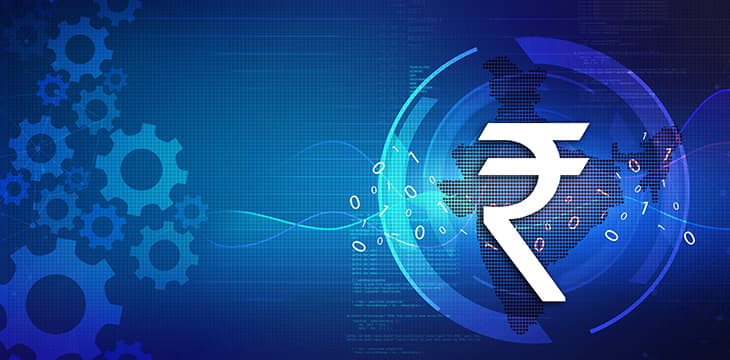|
Getting your Trinity Audio player ready...
|
The Reserve Bank of India (RBI) has announced that it will launch a pilot for its central bank digital currency (CBDC) with specific use cases to be examined in depth. At the top of the list for the central bank is to explore how the use of the digital rupee can cut costs in trading government securities.
Per the announcement, the central bank hoped the digital rupee would “pre-empt the need for settlement guarantee infrastructure or for collateral to mitigate risk.”
Government securities like treasury bonds, bills, and notes are often considered risk-free investments because they have the government’s backing. However, the fees and charges associated with this investment may worry parties. Some academics have opined that using CBDCs may be instrumental in reducing costs.
Nine banks have been selected to participate in the pilot, including the State Bank of India, Bank of Baroda, Union Bank of India, and HDFC Bank. Others include Kotak Mahindra Bank, Yes Bank, ICICI Bank, and HSBC, while the announcement noted that the retail segment would begin sometime in December, targeting close user groups in selected areas.
Exploring how CBDCs will be used in the reduction of fees falls under the ambit of wholesale CBDCs. The RBI’s circular indicates that the pilot will explore other wholesale CBDCs, particularly cross-border payments. The banking regulator added that the new experiments will be “based on the learnings from this pilot.”
The digital rupee
India’s CBDC plans have come a long way, driven by the need to stifle the growth of virtual assets and to compete with other jurisdictions in different stages of their CBDC development. RBI announced way back in 2020 that it was looking into the viability of a digital iteration of its currency, with retail and wholesale versions being considered.
“In this context, it is the responsibility of the central bank to provide its citizens with a risk-free central bank digital money which will provide the users the same experience of dealing in currency in digital form without any risks associated with private cryptocurrencies,” RBI said.
RBI has previously disclosed that the digital rupee will be built on the distributed ledger technology (DLT) after citing the range of benefits it could offer. Finance Minister Nirmala Sitharaman had previously stated that India is expecting a 46% adoption of DLT and could see immediate adoption in several areas.
Other countries in South Asia like Thailand, Indonesia, and the Philippines, have begun exploring digital versions of their national countries.
To learn more about central bank digital currencies and some of the design decisions that need to be considered when creating and launching it, read nChain’s CBDC playbook.
Watch: The BSV Global Blockchain Convention presentation, CBDCs and BSV

 02-20-2026
02-20-2026 




